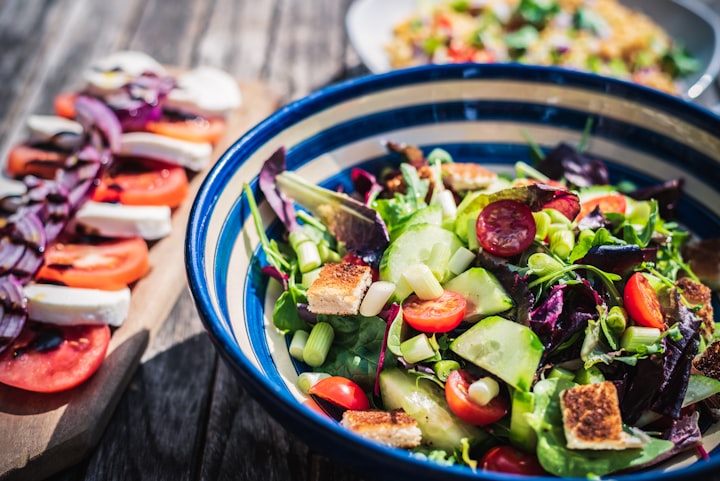Four reasons to avoid following a smoothie diet
Blueberry, raspberry, and blackberry; kale, spinach, and pears. These two well-known meal replacement smoothies seem to be just what the doctor ordered. The popularity of smoothie diets nowadays is largely due to their healthy reputation as well as the fact that they genuinely taste nice (unlike many items meant for weight loss). Knowing the truth, however, might assist you in determining whether these diet beverages are indeed as healthy as they appear to be. Let's first examine the foundation of smoothie diets before looking at some potential
What is the smoothie diet?
Smoothie diets often include substituting most meals—or perhaps all—with beverages made of fruits and vegetables. This gives dieters more control over calories, the main antagonist of a healthy diet.
Calories, commonly referred to as kcals, are a unit of measurement for the amount of energy found in food and drink. Whatever they are called, we need them. In fact, Healthdirect Australia estimates that the average adult needs about 2,080 calories each day.
The smoothie diet has undergone a number of changes. As a temporary solution, one of the most popular solutions is to drink them in place of regular meals. Participants may see calorie intake dropping to as little as 1,200 per day due to reductions in, particularly, carbohydrates and lipids, which causes rapid weight loss.
Looks good, doesn't it? Well, there are a number of smoothie diet side effects that may cause health issues.
Adding green juices to your diet KNOW MORE ABOUT IT
Possible drawbacks of the smoothie diet
Nutritional deficiencies:
"Nutritional deficiencies...with a green smoothie? ", you might be asking. I can't win. To start, let me state unequivocally that a smoothie diet won't substantially deprive you of essential minerals.
Contrary to what your grandmother may have claimed, you cannot get all of your needs met by eating your five a day. Smoothie diets have the potential to result in deficits in the:
B12 and vitamin D: Over the long run, a smoothie diet may not provide the required daily intake of these nutrients since they are most frequently found in meat or dairy products. The same as the other items on this list, vegans and occasionally vegetarians may run into this issue.
Protein: Animals account for the vast majority of protein sources. Long-term protein deficiency has been demonstrated to cause symptoms including anemia.
Zinc: While you can obtain zinc from lentils, beans, and seeds, humans often consume it in the form of meat and shellfish, which aren't typical smoothie diet ingredients.
Kidney stones
Up to 80% of solid deposits called kidney stones, which can be unpleasant and even life-threatening, are composed of calcium-oxalate complexes.
What relevance does this have to smoothies? The 'oxalate' component of calcium-oxalate, however, refers to an antinutrient that is present in large quantities in popular smoothie ingredients like spinach, berries, and broccoli.
Most oxalates leave the body as waste in the form of feces or urine. The waste may bond to calcium in the kidney and form crystalline masses, though, if your diet contains too much oxalate in addition to other risk factors.
Here are 10 dangerous ingredients to look out for: CLICK HERE TO KNOW MORE
Too much acid
The fruit has little fat or carbohydrates, but it also has a lot of naturally occurring acids.
Too much acid can result in a variety of issues, including dental enamel degradation. In fact, studies have revealed that specific fruit smoothies seriously damaged enamel. The mango and passionfruit smoothie, which was delectable but very acidic, was the worst offender in this trial.
Thyroid problems
According to some research, glucosinolates, which are frequently present in components for green smoothies including kale, cabbage, and sprouts, prevent the thyroid from properly absorbing iodine.
The production of hormones by our thyroid gland depends on iodine. These hormones regulate our metabolism and aid in bone and brain growth during infancy, among other things.
There you have it, then. The smoothie diet may be a short-term weight loss strategy that works for some people, but these drinks might not be as healthy as they first seem. As with any significant dietary change, we advise consulting your doctor before beginning a smoothie diet.
The outcome
The 21-Day Smoothie Diet is a three-week weight loss plan that suggests substituting smoothies for some of your daily meals.
The diet encourages many beneficial elements, but it is also unsustainable, has a low protein and calorie intake, and comes with additional concerns including side effects.
Additionally, it lacks study backing and is high in sugar and carbohydrates, which may not be healthy for diabetics.
Instead of switching between fad diets to achieve your goals, consider combining a nourishing, well-rounded diet with a healthy lifestyle for the best results.
That is better in the long run for controlling weight and overall health, and it is also much simpler, more durable, and more effective.






Comments
There are no comments for this story
Be the first to respond and start the conversation.